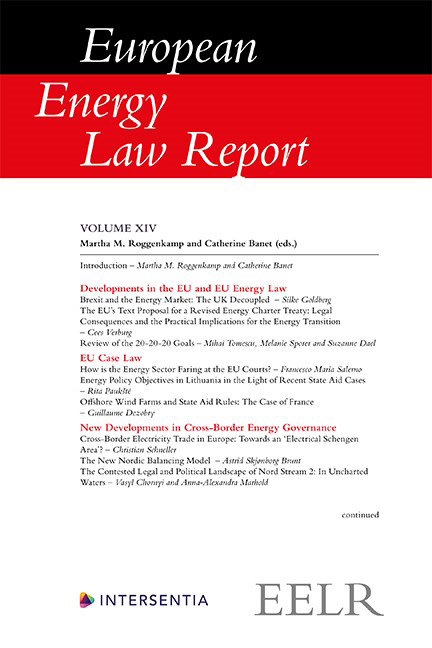Chapter I - Brexit and the Energy Market: The UK Decoupled
Published online by Cambridge University Press: 26 May 2022
Summary
INTRODUCTION
In the United Kingdom (UK), the years since the referendum of 23 June 2016 have been dominated by debates as to how and when Brexit should happen, and what form it might take. This has caused significant political uncertainty throughout the country. Members of Parliament appear, more often than not, to be negotiating among themselves rather than with the European Union (EU).
In the somewhat surprising early general election of 12 December 2019, Boris Johnson and the Conservative Party were handed an 80-seat majority in Parliament. It seemed that voters just wanted to ‘Get Brexit Done’. With such a majority, the Prime Minister pushed his Withdrawal Agreement and Political Declaration through Parliament and committed to an exit on 31 January 2020. To the surprise of many, and as a first of a kind in the UK’s Brexit process, this deadline was actually met and the UK leftthe EU on 31 January 2020 after 47 years of membership.
The UK is officially no longer a Member State of the EU and the transition period came to an end on 31 December 2020. Between 1 February and 31 December 2020, the UK had a special status in that it continued to adhere to EU law, paid into the EU budget, was part of the single market and fell under the jurisdiction of the EU courts, while no longer being represented in the EU political bodies such as the European Commission and the European Parliament. During this transition period, the UK and the EU negotiated the agreement for the future relationship between them.
This timeline was ambitious in comparison to other international free trade negotiations, but whilst the EU had conveyed a readiness to extend the transition period to avoid a no-deal Brexit, the UK government had expressed in direct terms, and anchored this in legislation, that there would not be an extension to the transition period, as Boris Johnson, the UK Prime Minister, had won the UK general election of December 2019 on a platform which promised to ‘get Brexit done’.
- Type
- Chapter
- Information
- European Energy Law Report , pp. 11 - 30Publisher: IntersentiaPrint publication year: 2021

